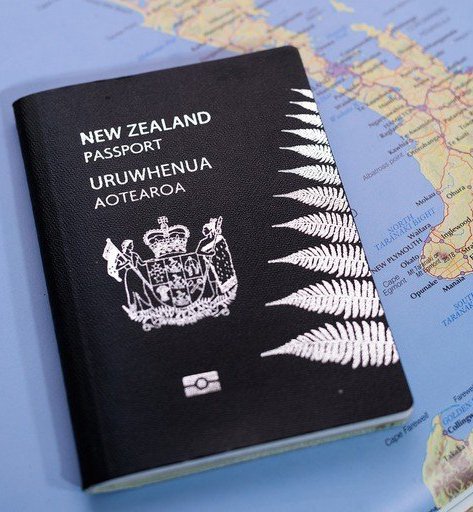Are you thinking about traveling to Canada? Whether you’re planning a vacation, pursuing higher education, or seeking employment opportunities, it’s essential to understand the requirements for different CANADA VISA TYPES.
In this article, we will guide you through the necessary steps and documents needed for various visa types, including:
- Tourist Visas
- Work Permits
- Study Permits
- Express Entry
- Family Sponsorship
- Business Immigration
- Permanent Residency
By following this comprehensive guide, you’ll gain a better understanding of the specific requirements for each visa category.
So, if you’re ready to embark on an exciting journey to Canada, let’s dive in and explore the necessary steps to make your visa application process smooth and hassle-free.
Key Takeaways
- Family Sponsorship: Eligibility criteria include being a Canadian citizen or permanent resident, meeting income requirements, and having various types of relationships with the sponsored family member.
- Business Immigration: Requirements involve investing in Canadian businesses or startups, demonstrating business experience and net worth, and contributing to economic growth and job creation.
- Invest in Canadian business or start-up: Steps include choosing a promising venture and injecting capital for growth, with considerations such as understanding business regulations, legal framework, and licensing processes.
- Demonstrate business experience and net worth: Necessary to showcase previous business experience, successful ventures, and provide evidence of net worth and financial statements to secure a Canadian business visa.
Tourist Visa
If you’re planning a vacation to Canada, you’ll need to apply for a tourist visa. Canada is known for its breathtaking landscapes, vibrant cities, and rich cultural heritage. From the stunning Rocky Mountains to the bustling streets of Toronto, there are plenty of tourist attractions to explore.
To apply for a tourist visa, you will need to meet certain requirements. First and foremost, you will need a valid passport from your home country. Your passport should be valid for at least six months beyond your planned departure date from Canada. Additionally, you will need to provide proof of sufficient funds to cover your expenses during your stay, such as bank statements or a letter from your employer.
It’s important to note that due to the ongoing COVID-19 pandemic, there may be travel restrictions in place. Before planning your trip, make sure to check the current travel advisories and guidelines issued by the Canadian government. These restrictions may include mandatory quarantine periods or proof of vaccination.
Once you have obtained your tourist visa and arrived in Canada, you can start exploring the country’s magnificent attractions. From the iconic Niagara Falls to the historic streets of Quebec City, there is something for everyone.
Now, if you’re planning to work in Canada during your stay, you will need to apply for a work permit. This will allow you to legally work in the country and earn an income.
Work Permit
To obtain a work permit in Canada, you must meet specific eligibility criteria and provide supporting documents. The work permit process involves several steps, including submitting an application, paying the required fees, and attending an interview if necessary.
Here are four important things to know about the work permit process:
- Eligibility: Before applying for a work permit, you must have a job offer from a Canadian employer. The employer may need to provide a positive Labor Market Impact Assessment (LMIA), which shows that hiring a foreign worker will not negatively impact the Canadian job market. Additionally, you must prove that you have the necessary skills, qualifications, and work experience to fulfill the job requirements.
- Supporting Documents: Along with your application, you will need to submit various supporting documents. These may include a valid passport, proof of job offer, educational certificates, language proficiency test results, and any other documents requested by the authorities. It is crucial to ensure that all documents are accurate, complete, and up to date.
- Work Permit Duration: The duration of a work permit can vary depending on the job offer and individual circumstances. Some work permits are issued for a specific period, while others may be open-ended. It is important to note that work permits generally have an expiry date, and you may need to apply for an extension or a new permit if you wish to continue working in Canada beyond that date.
- Transition to Study Permit: If you are planning to pursue further studies in Canada after your work permit expires, you can transition to a study permit. This will allow you to continue residing in Canada and pursue your educational goals.
Now, let’s move on to the next section about the ‘study permit’ and explore the requirements and process for obtaining one.
Study Permit
To apply for a Study Permit in Canada, you’ll need a few key documents. First, you must have a Letter of Acceptance from a Canadian educational institution.
Additionally, you’ll be required to provide proof of financial support for both tuition fees and living expenses.
Finally, you’ll need to undergo a medical examination and obtain a police clearance certificate.
Letter of acceptance from a Canadian educational institution
Enrolling in a Canadian educational institution requires obtaining a letter of acceptance. Canadian educational institutions are highly regarded worldwide, making them a popular choice for study abroad.
To secure a study permit, international students must first receive an acceptance letter from a Canadian educational institution. This letter confirms that the student has been accepted into a program and is eligible to study in Canada. It is an essential document that must be submitted as part of the visa application process.
Once you have your letter of acceptance, you can proceed to the next step, which is providing proof of financial support for tuition and living expenses. This documentation demonstrates that you have sufficient funds to cover your educational costs and living expenses while studying in Canada.
Proof of financial support for tuition and living expenses
Securing a study permit requires demonstrating your ability to financially support your education and living expenses while studying in Canada. This means you need to provide financial documentation and proof of funds to show that you have enough money to cover your tuition fees and living costs.
The Canadian government wants to ensure that you won’t face financial difficulties during your stay in Canada. They require you to show that you have enough money to pay for your first year of tuition fees, as well as funds to support yourself for the duration of your studies. This can include bank statements, scholarships, or sponsorship letters.
Once you have provided the necessary proof of financial support, you can move on to the next step, which involves completing a medical examination and obtaining a police clearance certificate.
Medical examination and police clearance certificate
After successfully demonstrating your financial ability to support your studies, it’s time for you to undergo a medical examination and obtain a police clearance certificate. These two requirements are essential for ensuring your health and safety while studying in Canada.
The medical examination is crucial for visa approval as it helps determine if you have any medical conditions that could pose a risk to public health or require expensive medical treatment in Canada. Certain medical conditions may impact your eligibility for a visa.
Obtaining a police clearance certificate is also essential as it verifies your good character and ensures you have no criminal record. This certificate demonstrates your commitment to maintaining a safe environment while studying in Canada.
These requirements not only contribute to a smooth visa application process but also prioritize the well-being of all individuals in Canada.
Now, let’s explore the next section about ‘express entry’ and how it can fast-track your immigration process.
Express Entry
During the Express Entry process, you can feel a surge of excitement as you imagine yourself beginning a new chapter in Canada. Express Entry is a popular immigration program that allows skilled workers to apply for permanent residency.
One of the pros of Express Entry is that it is a faster way to immigrate to Canada compared to other programs. The processing time for Express Entry applications is generally quicker, and successful applicants can receive an Invitation to Apply within six months. Another advantage is the eligibility criteria and points system.
To be eligible for Express Entry, you must meet the requirements of one of the economic immigration programs, such as the Federal Skilled Worker Program or the Canadian Experience Class. You also need to create an online profile and submit an Expression of Interest. The points system is based on factors such as age, education, work experience, language proficiency, and adaptability. The higher your score, the more likely you are to receive an Invitation to Apply.
However, there are also some cons to consider. The competition can be tough, as Express Entry is a popular program, and only a limited number of applicants are invited to apply. Additionally, the points system may favor certain occupations or skills, making it challenging for some individuals to qualify.
Overall, Express Entry is an attractive option for skilled workers looking to immigrate to Canada. Transitioning to the subsequent section about family sponsorship, it is important to note that Express Entry is not the only pathway to Canadian permanent residency.
Family Sponsorship
If you’re considering immigrating to Canada, one option to explore is family sponsorship. This allows Canadian citizens and permanent residents to sponsor their family members to come and live in Canada.
Family sponsorship is a popular choice for those who have close relatives in Canada and want to reunite with them. Here are four key points to know about family sponsorship and the immigration policies associated with it:
- Eligibility: To be eligible for family sponsorship, you must be a Canadian citizen or permanent resident, at least 18 years old, and meet certain income requirements to demonstrate that you can financially support your sponsored family member.
- Types of relationships: You can sponsor your spouse or common-law partner, dependent children, parents, grandparents, or other eligible relatives. Each category has its own specific requirements and documentation.
- Sponsorship process: The sponsorship process involves two main steps. First, you must submit an application to become a sponsor and meet the eligibility criteria. Once approved, you can then submit a separate application to sponsor your family member. The processing times can vary, so it’s important to be patient.
- Responsibilities: As a sponsor, you have certain responsibilities. You must provide financial support to your sponsored family member for a specific period of time, usually three to ten years, depending on the relationship. You are also responsible for their basic needs, such as housing, healthcare, and education.
Family sponsorship offers a pathway for families to be reunited in Canada.
Now, let’s transition to the next section about business immigration, which provides another avenue for individuals to immigrate to Canada.
Business Immigration
If you’re interested in Business Immigration to Canada, there are a few key points to consider.
Firstly, you can invest in a Canadian business or start-up to establish yourself in the country.
Secondly, you need to demonstrate your business experience and net worth to prove your ability to contribute to the Canadian economy.
Lastly, by creating jobs for Canadians, you can make a significant impact on the local economy.
Invest in a Canadian business or start-up
To invest in a Canadian business or start-up, you’ll need to choose a promising venture and inject capital to fuel its growth. Canada offers various investment opportunities, from established industries to emerging sectors like technology and renewable energy.
Before diving in, it’s essential to familiarize yourself with the country’s business regulations. Understanding the legal framework, tax requirements, and licensing processes will help you navigate the Canadian business landscape smoothly.
Additionally, demonstrating business experience and net worth is crucial to show your ability to manage and invest in a venture successfully.
As we move on to the next section about ‘demonstrate business experience and net worth,’ let’s explore how this requirement plays a significant role in securing your Canadian business visa.
Demonstrate business experience and net worth
Demonstrating your business experience and net worth is crucial in ensuring your success in securing a Canadian business visa. The Canadian government wants to ensure that individuals who wish to invest in their country have the necessary skills and financial stability to contribute to their economy.
When applying for a business visa, it is important to showcase your previous experience in running a business and highlight any successful ventures you have been a part of. Additionally, you should be prepared to provide evidence of your net worth, which includes your assets and financial statements. This will help the Canadian authorities assess your ability to invest and sustain a business in their country.
Once you have established your business experience and net worth, you can move on to the next step of the application process, which involves creating jobs for Canadians and contributing to the economy.
Create jobs for Canadians and contribute to the economy
Creating jobs for Canadians and contributing to the economy can have several benefits for both your business and the local community. Here are four ways in which this can be advantageous:
- Economic growth: By hiring local workers and generating employment, your business will contribute to the overall economic growth of Canada.
- Increased tax revenue: More jobs mean more tax contributions, which helps support public services and infrastructure development.
- Skill development: By providing job opportunities, you will contribute to the skill development and professional growth of Canadian workers.
- Social integration: Creating jobs for Canadians strengthens the bond between immigrants and the local community, fostering a sense of unity and cultural exchange.
By actively participating in Canada’s economy and society, you will be one step closer to obtaining permanent residency.
Permanent Residency
Obtaining permanent residency in Canada opens up a world of opportunities for you. It is a gateway to building a stable and successful future in the country. There are numerous benefits of obtaining permanent residency, making it an attractive option for many individuals.
One of the major benefits of permanent residency is the ability to live and work anywhere in Canada. You are no longer tied to a specific province or employer. This flexibility allows you to explore different regions, pursue better job opportunities, and improve your standard of living.
Moreover, as a permanent resident, you have access to government programs and services, including healthcare, education, and social benefits.
Another advantage is the opportunity to become a Canadian citizen. Permanent residents can apply for citizenship after residing in Canada for a certain period of time. Once you become a citizen, you can enjoy additional rights and privileges, such as the right to vote and run for political office. Citizenship also provides a sense of belonging and security, as you become part of a diverse and inclusive Canadian society.
Permanent residency also offers protection under Canadian law. You are entitled to legal rights and are protected against discrimination. This ensures that you can fully participate in all aspects of Canadian life without fear of prejudice or unfair treatment.
In conclusion, obtaining permanent residency in Canada comes with a multitude of benefits. It opens doors to a brighter future, allowing you to live, work, and thrive in this beautiful country. So, if you are looking to build a stable and successful life, permanent residency in Canada is definitely worth considering.
Frequently Asked Questions
What is the maximum duration allowed for a tourist visa in Canada?
The maximum duration allowed for a tourist visa in Canada is typically six months. To be eligible, you must meet the specific requirements set by the Canadian government.
Can I apply for a work permit in Canada if I don’t have a job offer?
Yes, you can apply for a work permit in Canada without a job offer. The work permit application process requires you to demonstrate your ability to support yourself during your job search in Canada.
Are there any restrictions on the type of courses I can pursue with a study permit in Canada?
There are no specific restrictions on the field of study for international students with a study permit in Canada. You have the freedom to pursue courses in any field that interests you.
Is there a specific list of occupations that are eligible for the Express Entry program?
Yes, there is a specific list of occupations that are eligible for the express entry program. This program allows skilled workers to immigrate to Canada based on their occupation and other criteria.
Can I sponsor a distant relative for family sponsorship in Canada?
Yes, you can sponsor a distant relative for family sponsorship in Canada. To do so, you need to meet the eligibility criteria set by the Canadian immigration process.
Conclusion
So there you have it, the requirements for different types of CANADA VISA REQUIREMENTS. Whether you’re planning a vacation, looking to work or study in Canada, or hoping to immigrate permanently, it’s important to familiarize yourself with the specific requirements for each visa category.
Remember to gather all the necessary documents, meet the eligibility criteria, and submit your application in a timely manner. With careful preparation and attention to detail, you’ll be one step closer to achieving your Canadian dream.
Good luck!







